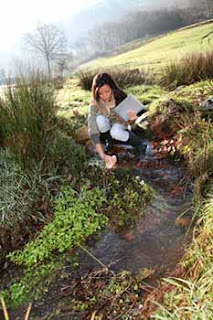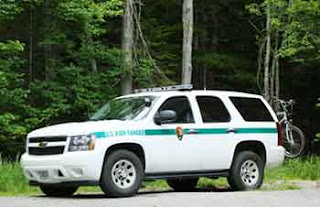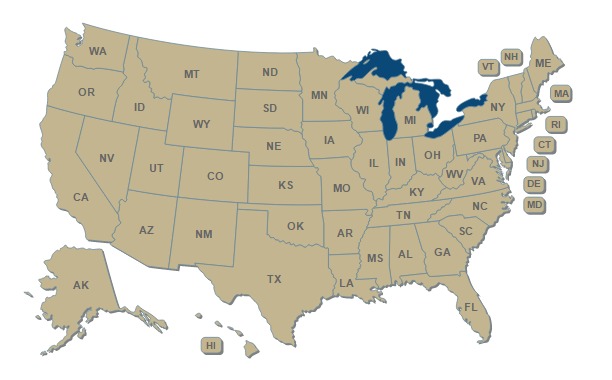Have you wondered “What is a game warden and what education is required?”
Fish and game wardens are law enforcement officers with the task and responsibility of patrolling lakes, rivers, wetlands, beaches, back country, deserts, and sometimes metropolitan areas of certain regions. The primary job of game wardens to enforce fish and wildlife laws, thus ensuring that wildlife is conserved and properly managed and that poachers and other violators are prosecuted. Game wardens are sometimes involved in undercover operations, while their important work will involve at random times jet boats, canoes, all-terrain vehicles, and even horses.
The responsibilities of game and fish wardens can vary depending on the areas where they work. Game wardens working in rural areas will often be responsible for preventing illegal poaching and enforcing hunting laws. Game wardens who patrol coastal areas will usually be enforcing boating laws and facilitating tasks such as the prevention of pollution and illegal dumping in sensitive waterways. Game wardens can also be seen working with the public on expanding public knowledge through providing public service programs and presentations. Game wardens sometimes meet with civic and community groups and clubs to discuss laws and regulations related to hunting and fishing. Game wardens often visit with landowners to encourage ethical hunting on their property in order to control wildlife populations and to assist with poaching problems.
Often, game wardens work alone. Game and fish wardens will often patrol challenging terrain and areas that prove quite remote. In addition to their patrol duties, many game wardens will accompany biologists and other environmental scientists to study wildlife or fisheries problems. This work is often crucial to the development of new wildlife initiatives or in setting the parameters of new hunting seasons.
Education and Expectations for Game Wardens
Here are some of the titles that refer to Game Wardens:
- wildlife conservation officers
- wildlife control agents
- fish and game wardens
Game wardens must be proficient in working as both law enforcement professionals and wildlife advocates. While working at either the state, or federal level, Game wardens should have a thorough understanding of state and federal wildlife laws. Additionally, game wardens must understand environmental issues that often pertain to their jurisdictions for natural resources, wildlife, and fish and game.
Usually, state wildlife departments will require that game wardens have some postsecondary education in the form of a viable and relevant Associate’s or Bachelor’s degree. The U.S. Fish and Wildlife Service often shows preference to job candidates who possess a Bachelor’s degree in a specific and related field. A formal degree will usually be the minimum requirement for your federal game warden job and for many state-level game warden jobs. Make sure that you read up on the particular requirements in your state to know what academic work you need to accomplish.
Get the education you need that will set you on the right path for working as a Game Warden.
Ongoing and extensive training in many areas is usually an integral part of being a game warden. Game and fish wardens must, of course, be knowledgeable, while maintaining advanced skills in the areas of state and federal wildlife laws and regulations, as well as a thorough understanding of geography, biological, and environmental sciences as they relate to wildlife and fish.
Most state wildlife departments will require standardized exams to test a candidate’s knowledge of the important facets to the job. A comprehensive knowledge of the environmental sciences is considered quite valuable, and is reflected through the attainment of a Bachelor’s degree or graduate degree.
It is very important for game wardens to be in good physical condition, as the job can easily require one to run, hike, and swim as the job demands; violators might be running from you, after all. Game wardens should be proficient and confident in operating a boat, ATV, motorcycle, or other motor vehicles. There are times when a game warden may be relied upon to provide first aid, deliver assistance to stranded motorists, and perform water rescues. Because game wardens are law enforcement officers, they must be more than willing to accomplish and maintain appropriate firearms certification.
Federal Level Game Wardens
Working for the U.S. Fish and Wildlife Service, within the Department of the Interior, game and fish wardens are referred to as special agents and federal wildlife enforcement officers. Federal game wardens, similar to game wardens at the state level, must always work to protect and conserve fish and wildlife and their habitats. Another essential part of the job for federal officers is to enforce federal conservation laws and manage wildlife populations through the following such tasks:
- Preventing crimes that pose an actual danger to previous wildlife resources
- Recovering endangered species
- Promoting international wildlife conservation
- Fighting invasive species
- Conserving migratory birds
The focus of the U.S. Fish and Wildlife Service will include the following such tasks:
- Inspecting wildlife shipments into the U.S.
- Identifying and rectifying domestic wildlife trafficking rings
- Enforcing federal migratory game bird hunting regulations
Federal conservation officers often work with state conservation officers and state and foreign law enforcement agencies to collaborate on reducing threats at any level: state, national, or international. The U.S. Fish and Wildlife Service also collaborates with many federal law enforcement agencies, including Homeland Security Investigations, the Environmental Protection Agency, and U.S. Customs and Border Protection.
Within our society, we have constant threats that range from 1) habitat destruction to 2)environmental contaminants; and 3)illegal trade to 4)industrial hazards. Working consistently toward diminishing threats to our nation’s wildlife and plant resources, game wardens prove to be an invaluable contribution and asset to our society.
Source:
Game Warden Org
 A Wildlife biologist researches and monitors plant and animal habitats in specific regions in order to determine various, and specific, environmental and population dynamics. Wildlife biologists may
A Wildlife biologist researches and monitors plant and animal habitats in specific regions in order to determine various, and specific, environmental and population dynamics. Wildlife biologists may 


